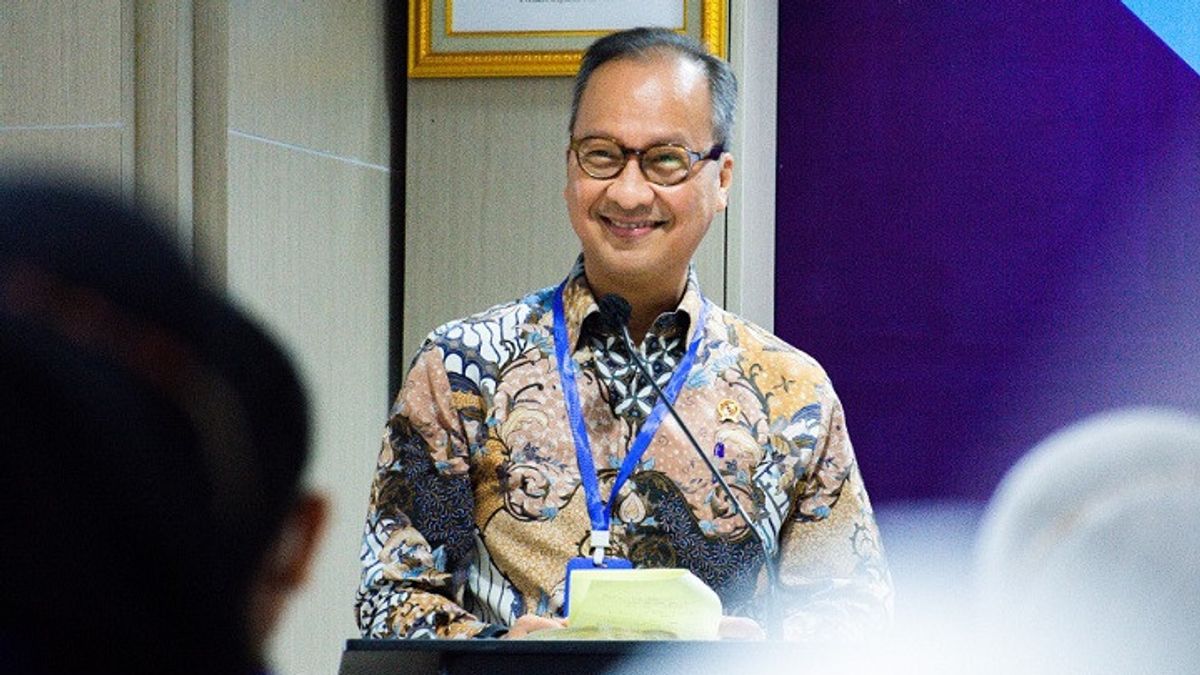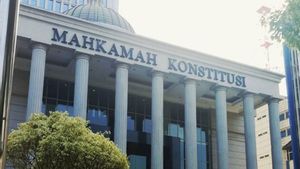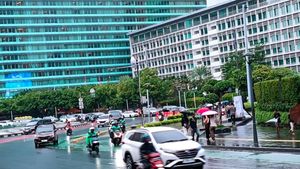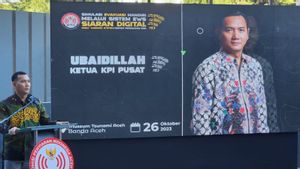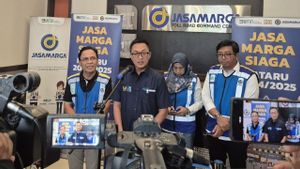JAKARTA - The processing industry is increasingly disbursing funds to increase capacity and make Indonesia a production base, in an effort to meet the needs of the domestic and export markets. This is reflected in the realization of investment in the industrial sector which reached Rp230.8 trillion or contributed 39.5 percent of the total investment value which reached Rp584.6 trillion in the first semester of 2022.
"The manufacturing industry sector has an investment value of Rp. 167.1 trillion in the first semester of 2021, to Rp. 230.8 trillion in the first semester of 2022, or a double digit increase of 38 percent," said Industry Minister Agus Gumiwang Kartasasmita in Jakarta, Saturday, July 23.
Referring to data from the Ministry of Investment / Investment Coordinating Board (BKPM), in January-June 2022, domestic investment (PMDN) in the industrial sector was IDR 65.2 trillion or contributed 23.8 percent of the total PMDN which reached IDR 274.2 trillion. Meanwhile, foreign investment (PMA) in the industrial sector penetrated Rp. 165.6 trillion or contributed the highest of 53.4 percent of the total FDI which reached Rp. 310.4 trillion.
During the first semester of 2022, the manufacturing sector that contributed the most to the achievement of PMDN was the food industry with a value of Rp. 24.2 trillion or an increase of 8.8 percent year-on-year (year-on-year). Furthermore, for FDI achievements, the largest contribution from the manufacturing sector was the basic metal, metal goods, non-machinery and equipment industry which reached 5.7 billion US dollars, up 26.3 percent (yoy) and the chemical and pharmaceutical industry by 1.8 billion US dollars, up 8.1 percent (yoy).
"Cumulatively, for PMDN and PMA in semester I-2022, the most dominant investment in the manufacturing sector is the basic metal industry, metal goods, not machinery and equipment amounting to Rp. 87.9 trillion, up 15 percent (yoy), followed by the food industry by Rp. 42 trillion or an increase of 7.2 percent (yoy),” said Agus.
The Minister of Industry explained that so far, increased investment in the industrial sector has always provided a broad multiplier effect for the national economy. In addition to increasing foreign exchange and employment, it will also strengthen the domestic manufacturing structure so that industries in Indonesia can be more competitive on the global stage.
"Indonesia is still an investment destination, because it is supported by a large market potential and pro-business government policies for business actors, including efforts to accelerate national economic recovery due to the impact of the COVID-19 pandemic," he explained.
Agus emphasized that the government is determined to consistently improve a conducive business and investment climate. Through maximum efforts to control the COVID-19 pandemic, the realization of investment realization will continue to increase.
"In addition, domestic demand that is getting better along with the flexibility of community activity mobility, as well as the acceleration of giving booster vaccines to the community and industrial workers, is a guarantee for the continued high interest of investors to expand in the country," he added.
According to Agus, investors are currently targeting more productive sectors such as the manufacturing industry than other sectors. "Therefore, in addition to encouraging the capital-intensive industrial sector for technology transfer, we are also encouraging the labor-intensive industrial sector as an effort to increase labor absorption in the country," said the Minister of Industry.
According to him, the government's policy of consistently implementing industrial downstreaming and stopping exports of raw materials is considered a potential for increasing investment, especially in the smelting and refining (smelter) industry. “Smelter factories are starting to grow in a number of areas outside Java. That is, it will encourage economic equity or be in line with Indonesia-centric development," said Agus.
In addition, efforts are needed to make Indonesia a country with an environmentally friendly industry. This is because the world today tends to choose products from industries that use new and renewable energy (EBT).
"In addition to efforts to increase the added value of domestic raw materials through industrial downstreaming, we are also committed to accelerating the development of green industries and building an electric vehicle ecosystem. This is in line with the priority program on the Making Indonesia 4.0 roadmap, with a target of entering the Top Ten countries with the strongest economy in the world by 2030," he said.
The English, Chinese, Japanese, Arabic, and French versions are automatically generated by the AI. So there may still be inaccuracies in translating, please always see Indonesian as our main language. (system supported by DigitalSiber.id)
